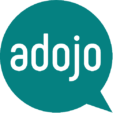
Trends and Challenges for Successful Hotel Marketing in 2023
Interview with Hotel Expert Carsten Arndt
- Susanne Bücherl
The hospitality market remains tense in 2023, marked by fierce competition in a saturated market. Hotels have never been under such pressure to achieve perfection in their marketing activities to stand out from the crowd. Standing out is imperative, or the hotelier risks fading into obscurity. Those who fail to distinguish themselves through authenticity, innovation, and a unique selling proposition (USP) are already at a disadvantage. This is a daily battle. Hotel marketing expert Carsten Arndt (with 20 years of experience in the hospitality industry) knows the sector’s challenges and, with adojo, tackles the adversities of the hotel market. In this interview, he explains what matters this year and which trends should be given special attention.
Carsten, you’ve been in the hotel industry for many years, including as a hotel manager and CEO. How does the hotel market differ from then to now?
I believe the development of the hotel industry can largely be attributed to a major trend: digitization. The digitization of the hotel and accommodation industry has significantly contributed to the market’s development and intensified the competitive situation. Just think back 20 years. There was no Google Maps yet; meta-search engines like Expedia.de were still in their infancy, and an open price comparison, as we currently know it through the online world, did not exist in this form.
The trend in hotel marketing is clearly towards a digitized booking and stay experience.

How exactly do you think digitization has influenced the hotel industry?
The three major changes attributable to the digitization process occurred in the areas of personnel management, customer expectations, and pricing.
There is currently a shortage of skilled workers in the hotel industry. Dealing with Corona and short-time work have shaken confidence in the industry as a secure employer. This, coupled with a comparatively low wage level in comparison to other industries, deters young people from starting their training in the hotel industry. They prefer to pursue their careers in industries that offer more secure wages. Additionally, they see that digitization in other sectors, through home office and mobile work, offers a better work-life balance. This profession, therefore, needs to be made fashionable again.
In addition to the lack of skilled personnel, hoteliers are simultaneously dealing with rising customer expectations. Staying overnight is no longer just about having a clean bed. No, guests now expect at least the same comfort as at home. Free Wi-Fi, digital key cards, or WhatsApp contact with the service staff are now must-haves for any hotel stay. It’s even better if the guest can check in and out digitally.
Personnel management and the increasing demands of guests require hoteliers to rethink and create new incentives. They need to invest – that’s clear, but not so easy. Because this is countered by the fierce price competition in this industry. Competition has never been as transparent as it is currently with the emergence of meta-search engines in the early 2000s and Google Maps in 2005. Suddenly, I see who my direct competitors are. I can see the booking prices of my competitors and compare directly. At the same time, in 2019, when the Corona measures for hotels were in place and hoteliers were struggling with significant revenue losses, the price level was greatly reduced.

That sounds like a difficult stalemate. How can hoteliers get out of this vicious circle?
Admittedly, this is not so easy, and it always depends on the individual case and the specific situation. But I always advise hoteliers to take a two-pronged approach. Currently, hotels cannot avoid securing their place in the common OTAs and meta-search engines since these are still used by most potential guests. The goal is to be discoverable and to present oneself there as best as possible. However, in the long run, booking via one’s own website should be aimed for. Because only then do the high margins that the hotelier pays to the OTAs for each booking disappear. But for this, a functioning booking system on the own website is necessary. It’s obvious that the offer must be right.
How does adojo help to drive the digitization process in hotels?
The process is very individual and depends on the hotelier’s individual situation. We always look at the worst pain points first. Where is it most difficult right now? How much budget is available? Who is the target group? What is the USP? How is the competition positioned? After initial discussions and a detailed market analysis, a common path usually emerges.
Sometimes the first step is to get the website up to scratch and establish your own booking process. Sometimes there is a lack of a good presence in the common OTAs or the hotelier is not present in the right OTAs. We then take over the maintenance and administration of the OTAs. We have also already installed and set up self-check-in and -out systems. As you can see, the digitization process is wide-ranging and extensive. That is why it is so important to clarify in advance exactly where the hotelier currently stands and what his goals are.

One last question: What is your opinion on influencer marketing in the marketing strategy of hotels?
Influencer marketing is a current topic and many companies have added social media to their marketing strategy to varying degrees. Part of this is cooperation with social media influencers who promote the service or product in their community. There are different models for hotels. A cooperation agreement can look very different.
Whether you invite the influencer(s) free of charge so that they can then show the best sides of the hotel depends entirely on what a new customer is worth to the hotelier. It doesn’t always have to be an “influencer star” with an extremely large number of followers; nano-influencers with a more specific target group in the community are also a good way to advertise your own hotel. The only requirement: your own social media channel, or at least the website, should not lag behind the hotel’s USP. Otherwise you will lose potential new customers along the way if the online presence does not match the hotel.
Thank you, Carsten, for your assessment of the topic. If you have any questions afterwards or would like to have your own hotel checked out, you can use the contact form to describe your request.
Our service package for hotel marketing at a glance
- Optimization of the hotel homepage
- Placement in meta search engines
- Management of Google Ads campaigns
- Optimal placement with OTAs
- Control via Channel Manager
